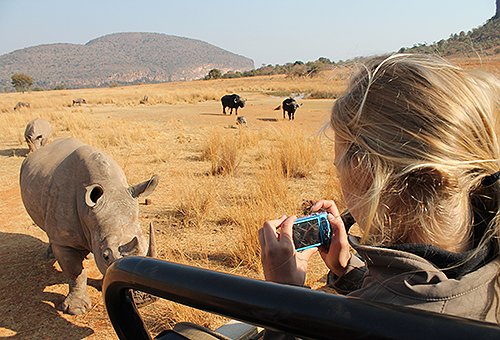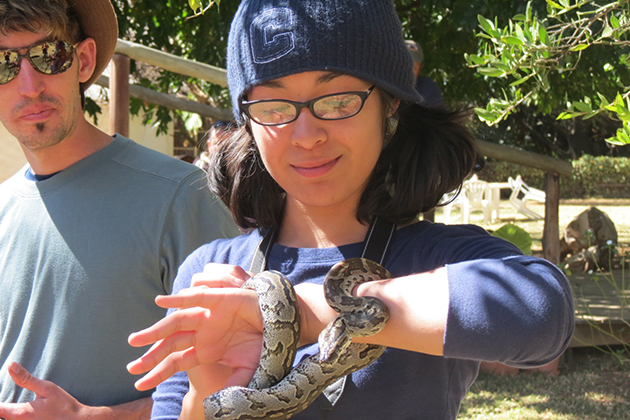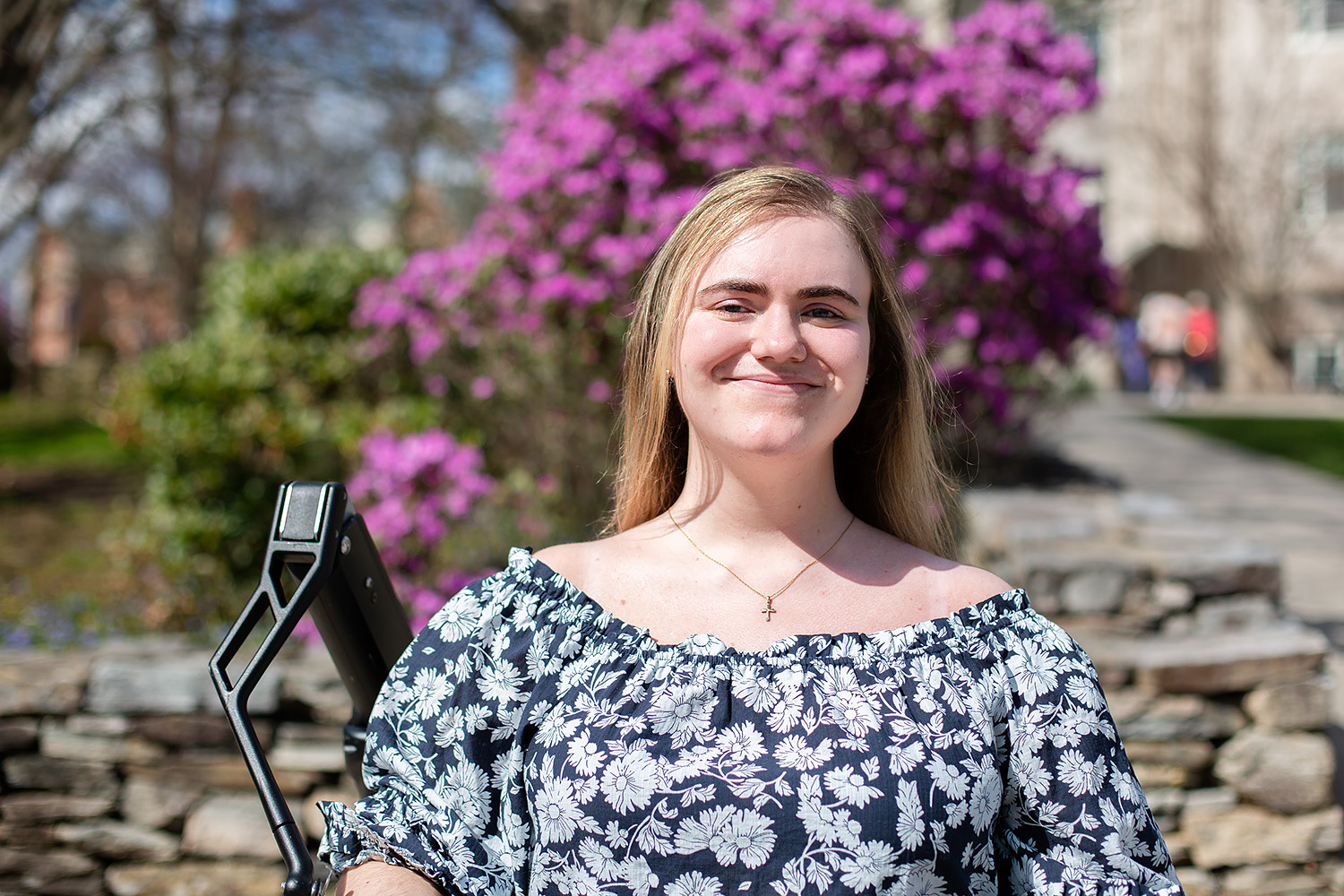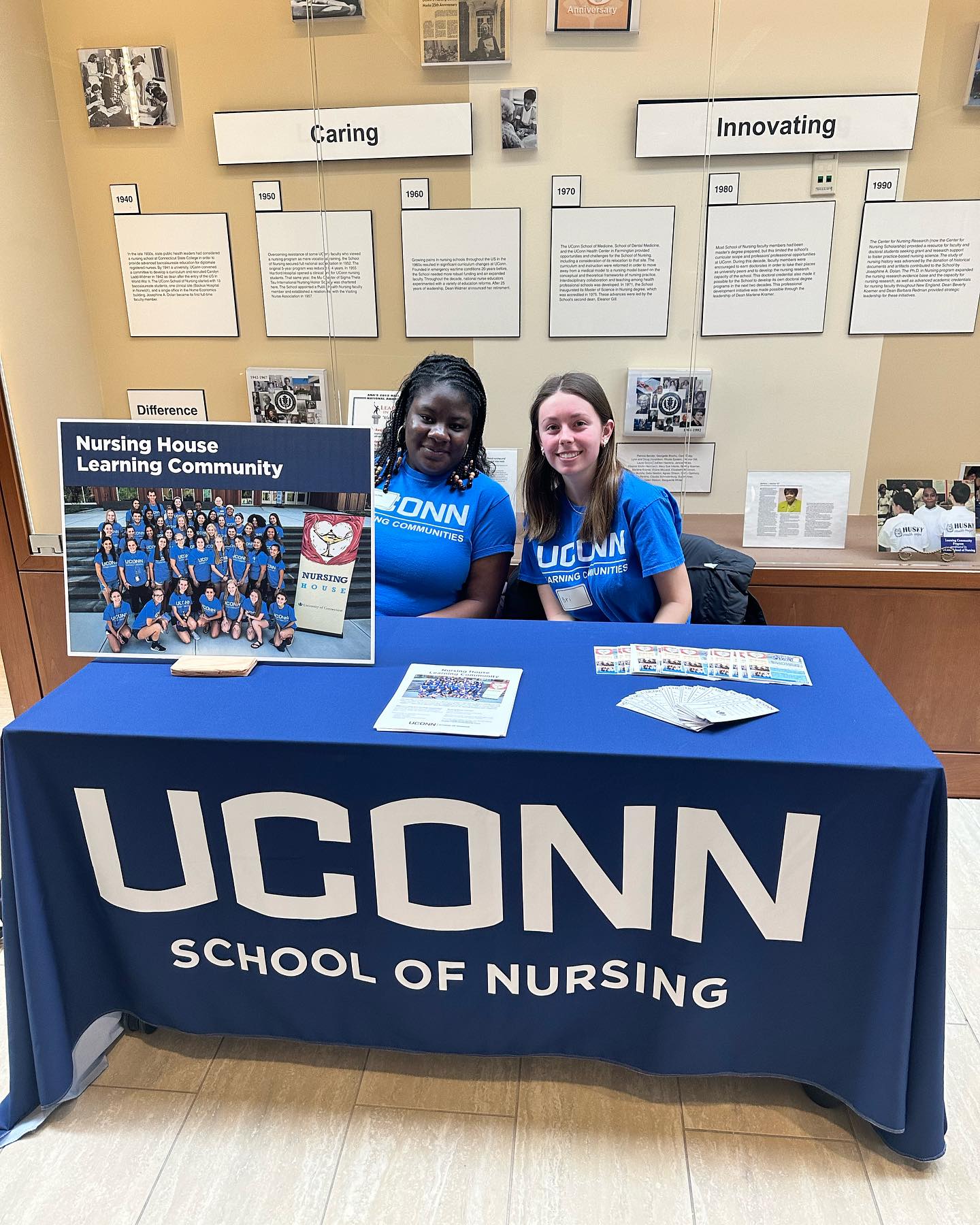In this first of a four-part special series, one of UConn Today’s journalists reports on the experiences of UConn students with whom she traveled to South Africa this past summer.
To learn more about African Field Ecology, which is a General Education course, visit http://bit.ly/RgJM3C, or attend the series of guest lectures to be held Oct. 1-4 in Storrs by Lee Gutteridge of the Entabeni Game Reserve. Email toafrica2013@gmail.com for details.
[flickr-gallery id=”72157631575252321″]
Imagine UConn students giving up cell phones, TVs, and the Internet. Dozens of them are gladly doing just that – for a class.
The coursework is decidedly unconventional, with students jotting notes from open-air cruisers traversing the African bush while they view cheetahs, lions, and giraffes. Thoughtful discussions happen around campfires illuminated by countless brilliant stars. Canvas tents take the place of dorm rooms, with screaming jackals and roaring lions often within earshot.

Led by Morty Ortega, associate professor of natural resources and the environment, this journey into the wilderness is at the heart of an African field ecology course offered through UConn’s College of Agriculture and Natural Resources. Following a semester in the classroom, Ortega’s students set out for a 21-day, summertime trek to Entabeni Game Reserve, a sprawling, 55,000-acre private nature reserve, to live and learn firsthand about the bushveld of South Africa.
“It’s like nothing you’ve ever done,” says Kelly O’Connor ’13 (CANR), one of 18 students who traveled to Entabeni this past summer. “It took me a couple of days to even feel like I was here. You can’t communicate to your brain that you’re not at a zoo – you’re actually looking at real wild animals.”
Spending up to 15 hours a day immersed in such activities as game drives, caving expeditions, venomous snake handling, and lessons in everything from animal tracking to anti-poaching to astronomy, students find a learning environment that proves to be engaging and free of distraction.
“This is one of the best classes I’ve taken because it’s so hands-on. I learn by doing,” says Amanda Baez ’12 (CANR). “You’re in it. You feel it. You sense everything. You become a part of it. You’re not sitting in a classroom taking notes. [The bush] becomes your classroom.”
‘A Positive Message’
By bringing groups to Africa since 2001, but to Entabeni up to three times a year since 2009, Ortega hopes to expand his students’ worldview while offering them compelling, practical lessons in ecology and preserving the environment.

“Many people are doom and gloom when they talk about conservation,” he says. “I want to give a positive message. Let’s visit different places on the planet, enjoy the planet, and see if we can’t save it.”
Entabeni, meaning “place of the mountain,” is a rare find, with several distinct ecosystems supporting a staggering variety of plants and animals. Boasting nearly 5 percent of the world’s bird species on one reserve alone, it is also home to thousands of other species, from zebras to cobras to crocodiles, as well as Africa’s “Big Five:” elephant, black rhino, leopard, lion, and Cape buffalo.
“That diversity – that’s a big part of why we can go out at any time of year and just see amazing wildlife, be it interesting insects to a lion hunting a giraffe,” says Lee Gutteridge, director of Entabeni’s Nature Guide Training School. “You can see pretty much anything here.”
With coursework tailored for university-level students, the reserve also provides specialized 25-day sessions for adults and an intensive, six-month accredited training program for aspiring nature guides. In addition, several lodges house tourists on safari vacations.
[yframe url=’http://www.youtube.com/watch?v=KVfySQh_Ntw’]
‘Life-Changing Experience’
Along with the knowledge they gain about the natural world over the three weeks, UConn students absorb local history and culture through daily interaction with Entabeni’s experienced and diverse troop of rangers. Simply sitting and talking around the campfire each night – without technology – becomes an unexpected perk as well.
“It’s not just buying a plane ticket and doing a semester abroad,” says Shane Feyers ’13 (CANR). “This forces you to find something inside of you that humans had all through evolution and just in the past couple hundred years have lost. Here, you find it.”
Many other students are just as quick to attest that the course extends well beyond lessons in ecology.
For Trevor Biggs ’12 (CLAS), the opportunity for self-discovery was clear. “In college, most of the time when you hear about Africa and trips to Africa, the question is, ‘What can you do for Africa?’ But here, it’s more like, ‘What can Africa do for you?’”
Michael Bok ’13 (CANR) agrees. “The class itself is just a life-changing experience that would really benefit humanity as a whole. It sounds a little cheesy, but it kind of puts things into perspective and touches your heart. … [and] would benefit a lot of people outside of the ecological field.”
For some students, the prospect of such an adventure is precisely what drew them to UConn in the first place. For others, the experience is one they are eager to endorse.
“I’ll do what I can to spread the word to everybody about how incredible this is,” says Lee Hecker ’13 (CLAS). “It’s a once-in-a-lifetime opportunity that you can’t pass up. It’s something people need to know about and need to be a part of.”



